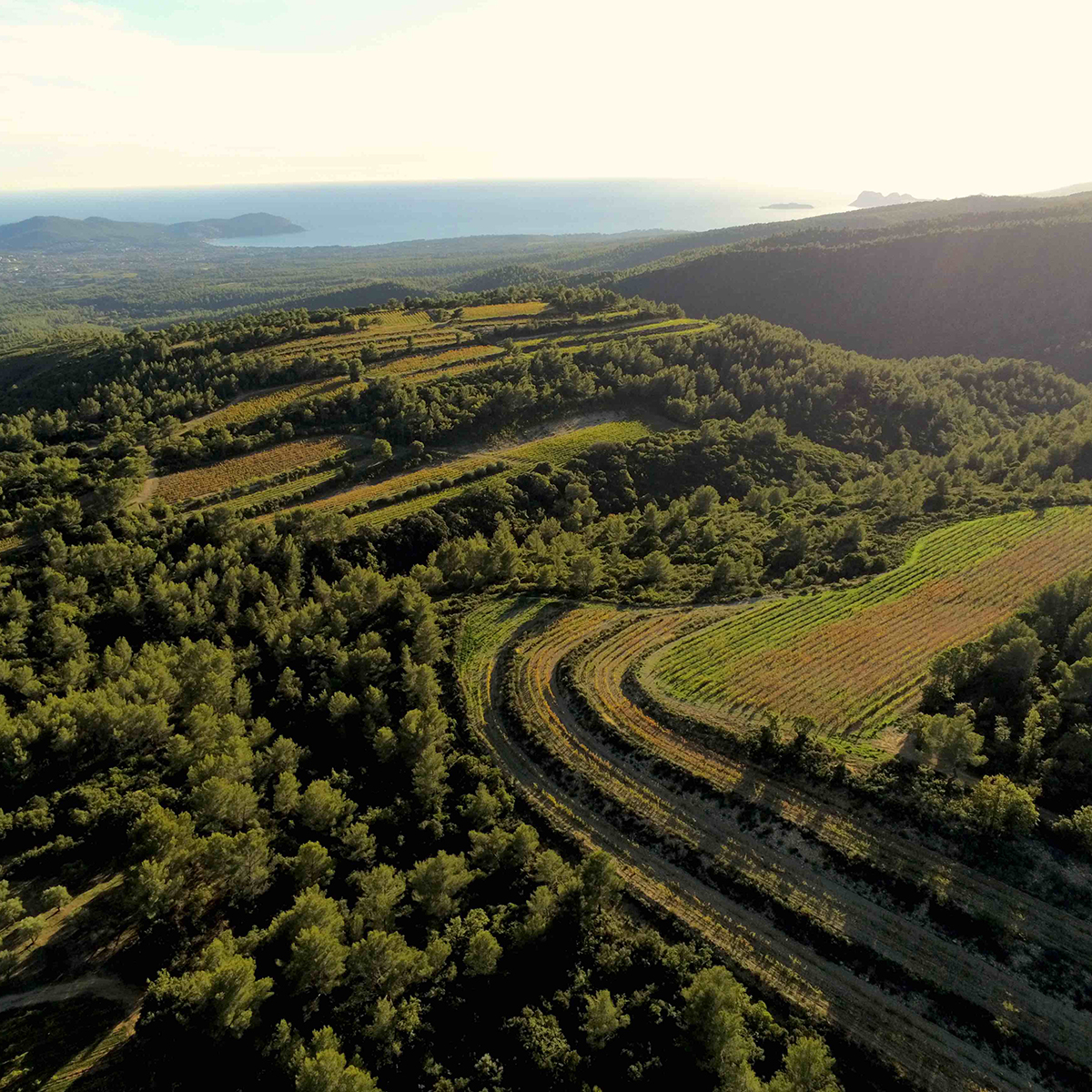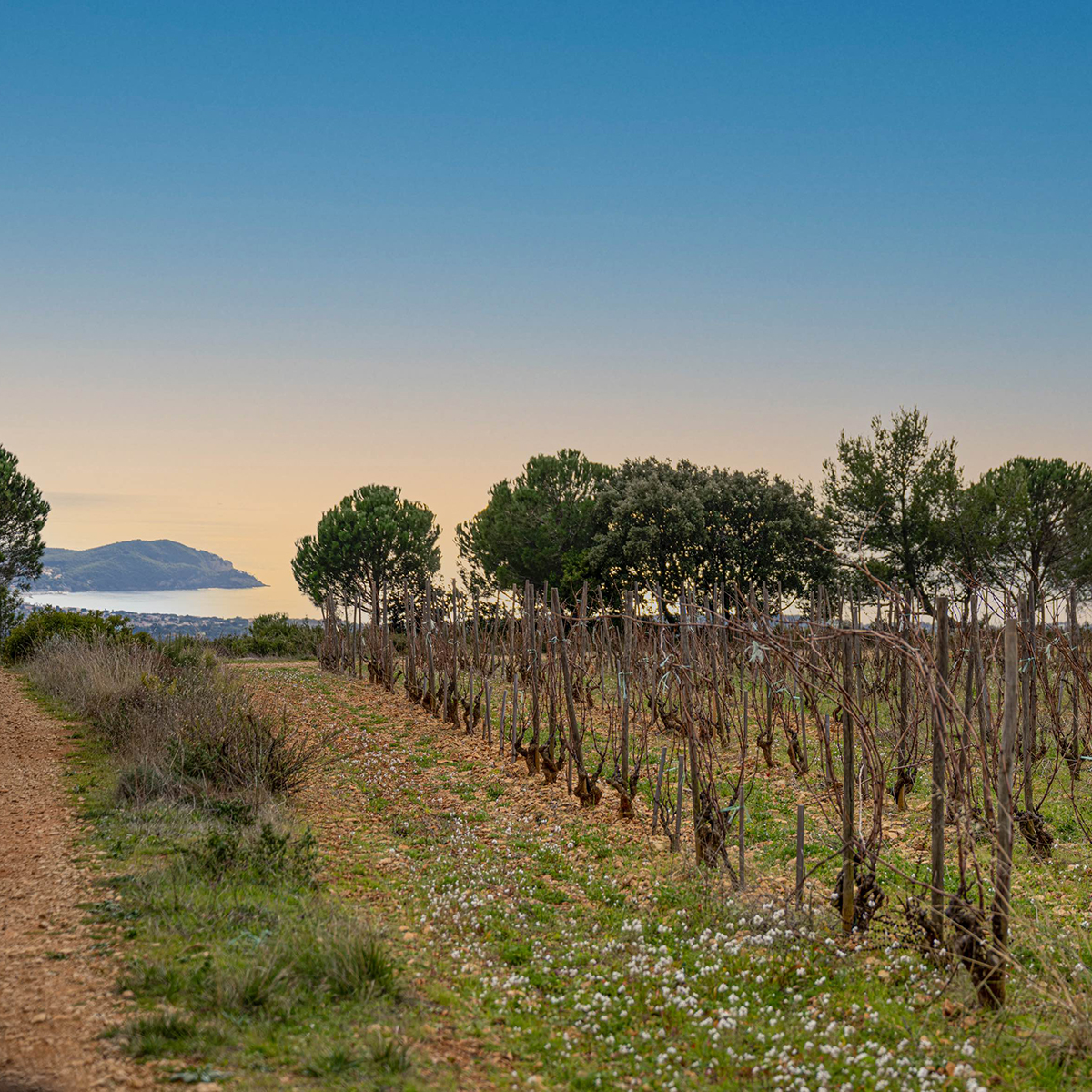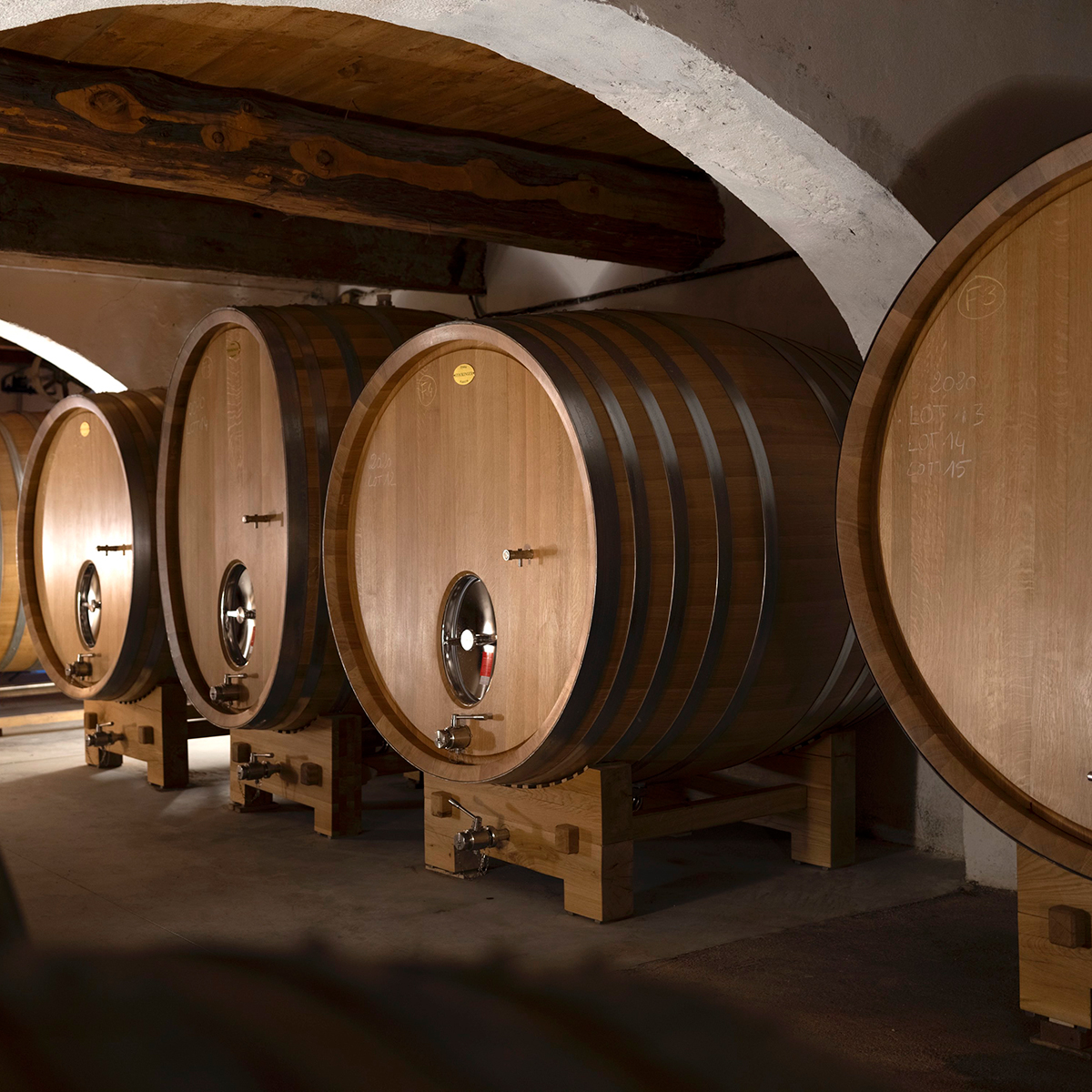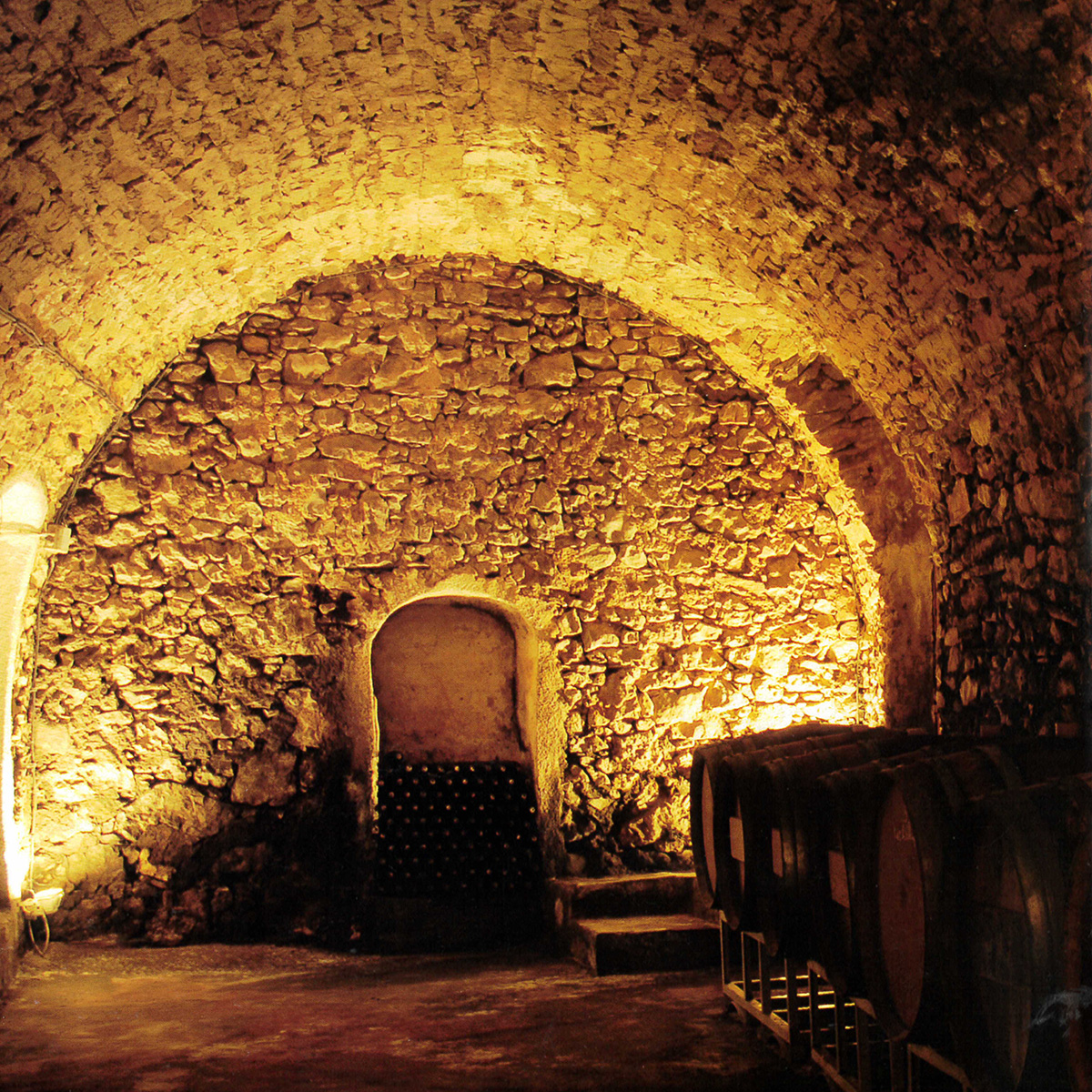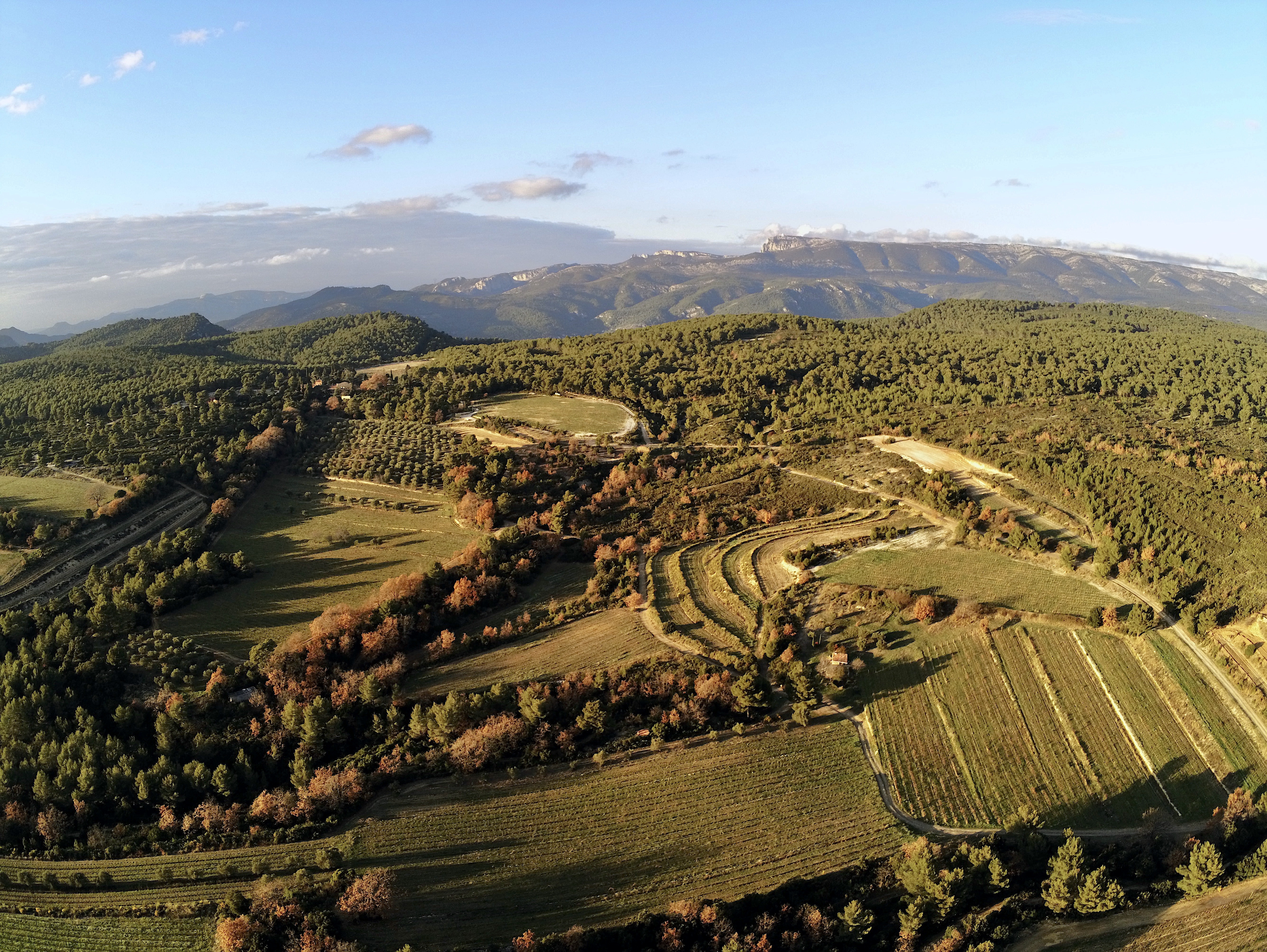
Domaine de la Bégude is one of Bandol’s oldest and most emblematic domaines. Originally a medieval stopover for pilgrims (‘beguda’ meaning ‘place to drink’ in Provençal), it was abandoned until Guillaume Tari of Château Giscours purchased and restored it in 1996. Guillaume replanted 45 hectares of steep terraced vineyard predominantly with Mourvèdre, creating the world’s largest clonal collection of this variety that forms the backbone of all Bandol, now totalling over 150 clones. He also oversaw the conversion to sustainable viticulture, with Domaine de la Bégude becoming organic certified in 2008 and biodynamic certified from 2023. The domaine was recently sold to the Roulleau family, owners of Château Dauzac in Margaux, who share Guillaume’s vision for its future.
A combination of clay-limestone soils, high elevation (at 410 metres above sea level, Domaine de la Bégude is the highest estate in Bandol), and sea breezes moderate the intense Provençal sunshine and bring freshness to these wines. The grapes are all harvested manually, sorted twice, destemmed and fermented with indigenous yeasts. The Bandol appellation requires red wines to be sourced from vines with a minimum of eight years of age, contain at least 50% Mourvèdre and undergo 18 months of oak ageing. The ‘Cadet’ rouge and rosé are an equal blend of Mourvèdre, Grenache and Cinsault sourced from the youngest vines at the estate, with an average age of 10 years. As a result, these wines are classified as ‘IGP Méditerranée’ but still express a distinctive sense of place.
The Bandol rosé is aged for a period on fine lees to add further complexity and freshness, which balances the higher percentage of Mourvèdre in the blend. The Bandol ‘Thyrsus’ is a 100% Mourvèdre, fermented and aged for six months in amphorae and bottled without sulphur. The resulting wine displays layers of pure black fruit punctuated by notes of thyme and cinnamon and supported by firm tannins.
The Bandol Rouge is a blend of 90% Mourvèdre and 10% Grenache, aged for 20 months in a combination of 600-litre demi-muids and 300 and 400-litre used oak foudres. Its structured palate is balanced by concentrated red and black fruit with lifted notes of violet and garrigue and a persistent finish – this is Bandol at its best!
All wines from this producer
Producer | Wine | Product Code | Features | Style | |
|---|---|---|---|---|---|
| Domaine de la Bégude | Cadet de la Bégude Rouge IGP | DB401 | R | ||
| Cadet de la Bégude Rosé IGP | DB402 | Ro | |||
| Bandol Rosé | DB403 | Ro | |||
| Bandol Rouge | DB404 | R | |||
| Thyrsus IGP | DB405 | R | Factsheet |
